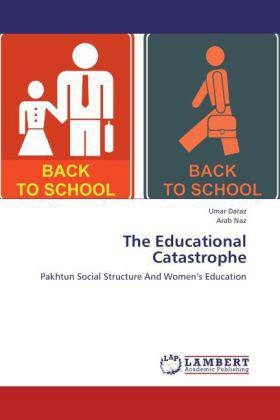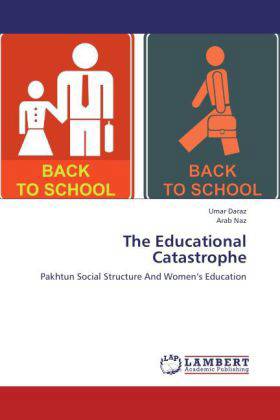
- Afhalen na 1 uur in een winkel met voorraad
- Gratis thuislevering in België vanaf € 30
- Ruim aanbod met 7 miljoen producten
- Afhalen na 1 uur in een winkel met voorraad
- Gratis thuislevering in België vanaf € 30
- Ruim aanbod met 7 miljoen producten
Zoeken
The Educational Catastrophe
Pakhtun Social Structure And Women s Education
Umar Daraz, Arab Naz
Paperback | Engels
€ 48,45
+ 96 punten
Omschrijving
Education is the reconstruction of human experiences, development of man's faculty especially his/her mind (Aristotle). Conception of prosperity and development may be insatiable without quality education. Discrepancy in provision of education on gender basis has been a universal concern. Particularly societies based on traditionalism and customary law are found more prone towards gendered educational system. This book also emphasizes on gender issues with respect to education as gender and education are highly debated concerns in the present day of modernity. The empirical and secondary information collected to design this manuscript, patently elaborate that the centuries old customary law, patriarchic structure and male dominance prove as hurdles in the way of women's education. In addition, the poor economic conditions of the area add fuel to the fire along-with the discouraging communal response and numerous physical impediments intensify the educational apathy. The study has been conducted in a traditional Pakhtun society that is governed by its own normative structure prominently known as Pakhtunwali that is to a high extent regarded as hurdle to women's education.
Specificaties
Betrokkenen
- Auteur(s):
- Uitgeverij:
Inhoud
- Aantal bladzijden:
- 132
- Taal:
- Engels
Eigenschappen
- Productcode (EAN):
- 9783846514498
- Verschijningsdatum:
- 13/08/2012
- Uitvoering:
- Paperback
- Formaat:
- Trade paperback (VS)
- Afmetingen:
- 152 mm x 229 mm
- Gewicht:
- 204 g

Alleen bij Standaard Boekhandel
+ 96 punten op je klantenkaart van Standaard Boekhandel
Beoordelingen
We publiceren alleen reviews die voldoen aan de voorwaarden voor reviews. Bekijk onze voorwaarden voor reviews.











